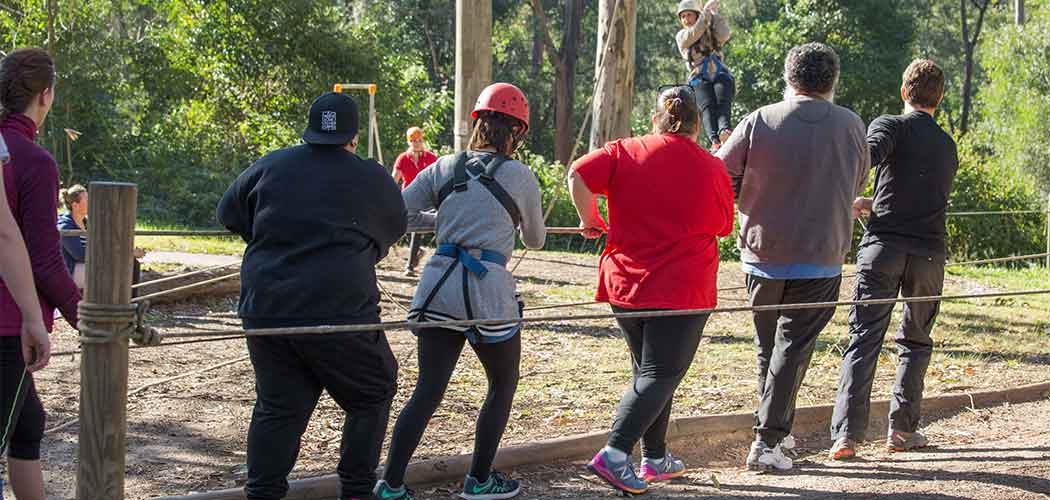The first of its kind in Australia and the world, mental health recovery camps for undergraduate nurses have received awards since their inception in 2012.
Natalie Dragon talks with co-founder Professor Lorna Moxham on the growing success and why the program should be funded nationally.
“It’s a clinical placement, but it’s also a psychosocial intervention for people with mental illness. It provides both student learning and it has an outcome for people experiencing mental illness,” says Professor of Mental Health Nursing Lorna Moxham, of the University of Wollongong (UOW).
The idea for Recovery Camp was borne out of the need for clinical placements for students at UOW. “Like all universities, you’ve got to send students out on 800 hours clinical placement. I work in the mental health space and there’s just not enough mental health clinical placements,” says Professor Moxham.
“In my mind back then was that we need placement numbers and maybe this is how we can get the numbers through. I approached the university with the idea, and we got a very small grant that year to run the first one in May 2013 with 20 students and 20 consumers.”
Whilst Moxham was confident the camp would be beneficial; the results were remarkable – both for the students and the mental health consumers (called experts because of their lived experience).
“You could see that it was not just ticking the placement box but that students were learning from things they couldn’t learn from books – they were learning from people with lived experience. By the Wednesday we could also see the impact that it was having on people with mental illness.”
Immersive experience
Each camp is a four-night, five-day, immersive experience where health students and people with lived experience of mental illness engage together in recovery-oriented, therapeutic recreation activities that promote mental health, social connection, and physical activity.
On the back of initial success, UOW ran Recovery Camp for several years before it being commercialised to be able to be offered to other universities and students.
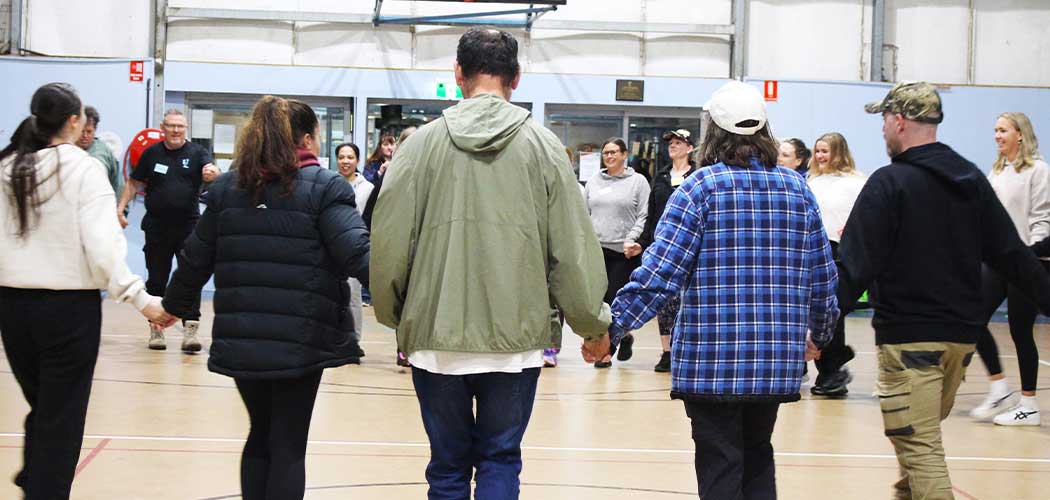
From students to facilitators: a full-circle journey
One of the most incredible aspects of Recovery Camp is how it inspires students to continue their journey in mental health. Many students leave the camp profoundly impacted, igniting a passion for mental health nursing. Some of these students pursue careers in the field and return to Recovery Camp – not as students but as facilitators.
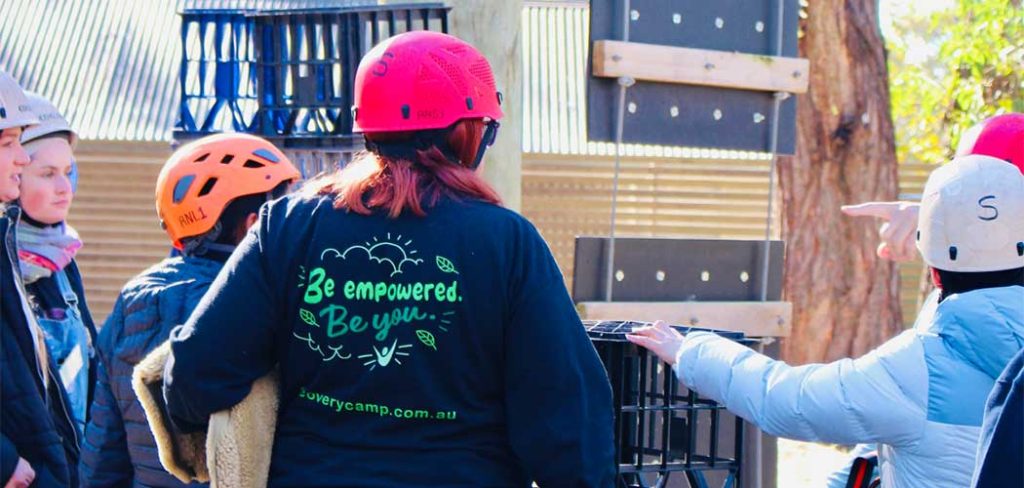
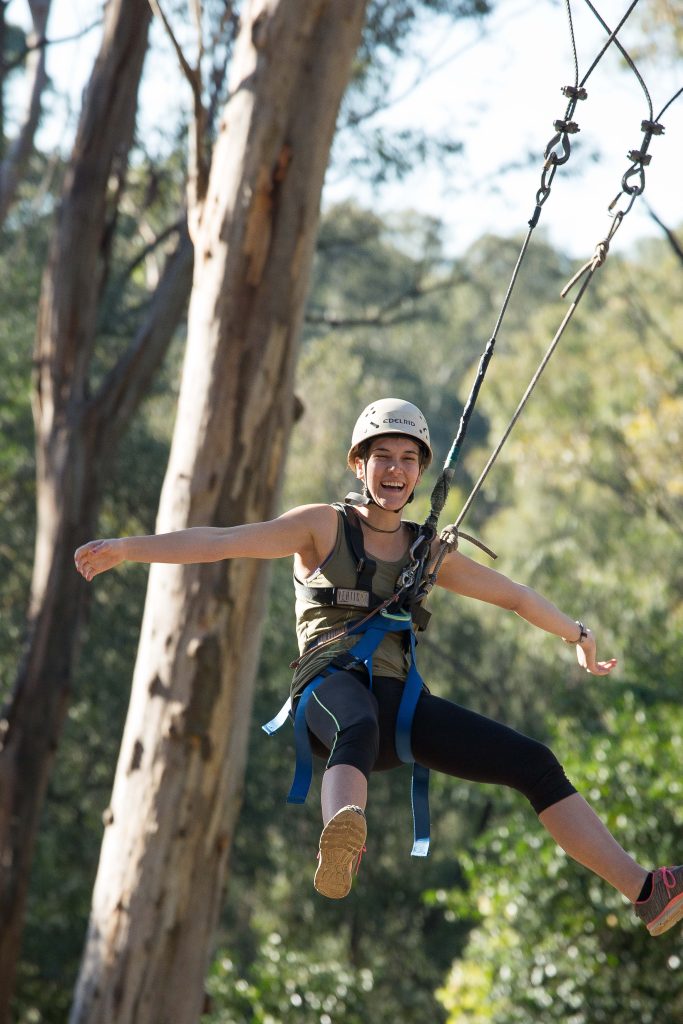
As facilitators, they work alongside a dedicated multidisciplinary team, guiding the next generation of health students through this transformative experience.
Their firsthand understanding of the camp’s impact makes their contributions invaluable in fostering an empowering and supportive environment.
Recovery Camp now provides around 135,600 student clinical placement hours to 14 different universities and has hosted international visitors from the USA, Canada, Taiwan, and India.
In May 2025, will be the 50th camp, with some consumers having attended more than 40 camps.
“Last week one of the consumers, Sharon, got a medallion for attending her 20th camp. People that come back often talk about how it helps them with their recovery and how it keeps them out of hospital,” says Professor Moxham.
“We know it’s keeping people out of hospital,” she adds. “We know because we’ve put the empirical measures around this, that if you come to camp, you’re likely to have a 67% reduction in presentations to the ED. And if you do have an admission, a 38% reduction in the length of stay.”
Consumers report feeling more hopeful, less stigmatised, and a greater sense of purpose. “We have a session, for example, called learning from experience and our consumers run that.”
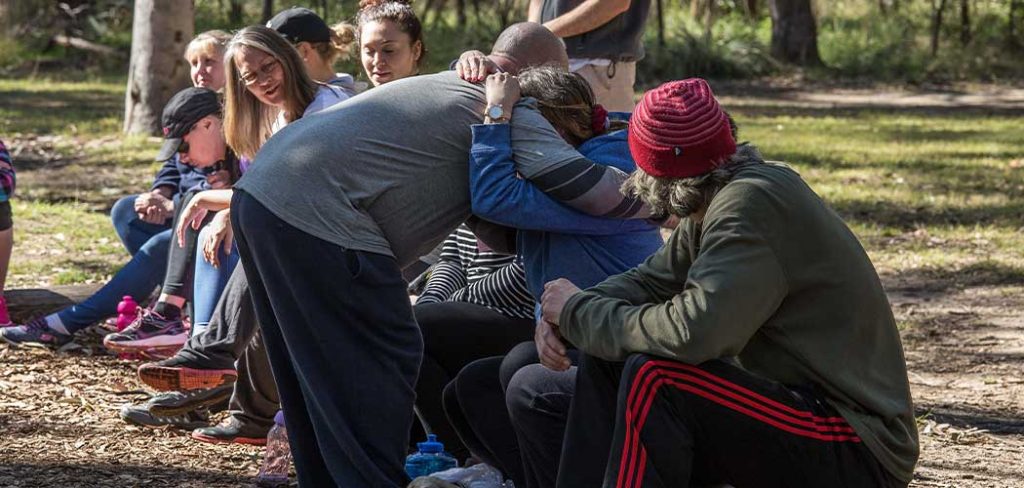
Skills
The teaching and learning that happens at camp is underscored by a strong theoretical underpinning. Students come out with increased confidence, proficient assessment skills, and an increased sense of value of mental health nursing as a profession.
“They develop more confidence in having therapeutic discussions with consumers with mental illness, including difficult discussions around suicide. They’re more competent in doing assessments,” says Professor Moxham.
“They develop an understanding about how to build therapeutic relationships, and then have a conversation with someone, but not making the client feel like they’re being assessed.”
Effective communication is the basis of mental health nursing,” says Moxham. “Someone comes to ED; they think they have a mental health issue. There’s no blood test, there’s no MRI, there’s no CT scan, there’s no X ray.
“If you can’t communicate and build a rapport very quickly in a very normal, non-judgmental way, that person is not going to tell you what you need to know. Your assessment can be wrong, the diagnosis is wrong and the treatment’s wrong.
“Communication is not a soft skill. It is the most complex of all nursing skills in all areas. Even if students don’t go into mental health, they’ll use these skills in a surgical ward or an operating room.”
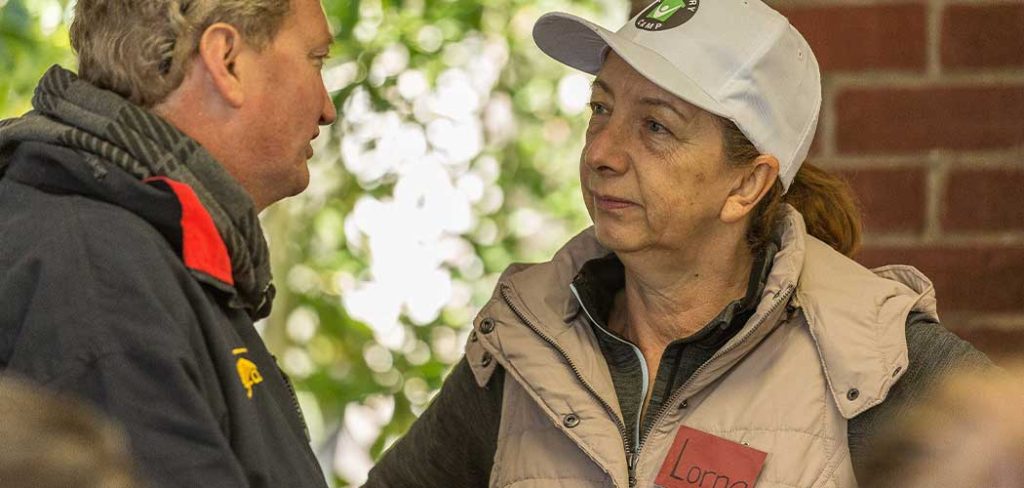
Nationwide
Recovery Camp is available for nursing, psychology, exercise science, nutrition, and dietetic undergraduate students and more recently paramedicine and occupational therapy. “So many more applied discipline areas now need mental health skills. Paramedics report that every second job they attend is mental-health related,” says Professor Moxham.
The camps are highly sought after; in the last camp 53 students applied for the 20 available places and camps are offered in Queensland, NSW and Victoria.
“People ring us from Adelaide and say, ‘Can you do it here?’ We get contacted weekly by universities asking, ‘Can you do more?’ We don’t have the resources; we could go national if we got funding,” says Professor Moxham who considers cost benefit analysis alone on keeping people out of hospital warrants the camps being supported with government funding for nationwide rollout.
It is critical to increasing our mental health workforce in the future, she argues. “Students come out with an increased interest in wanting to pursue mental health as a profession.”
“Our research has shown that those who do traditional mental health placements do not want to go into mental health nursing.”
“What we know that it’s not happening in the US, it’s not happening in Taiwan. Australia’s leading the space. It’s the only intervention of its kind in Australia, but we also think in the world.’
For more information, visit Recovery Camp


